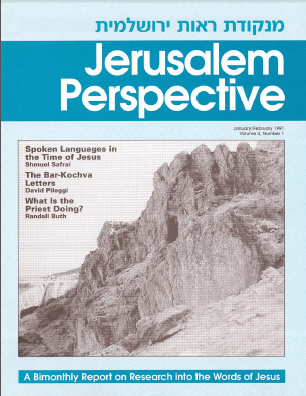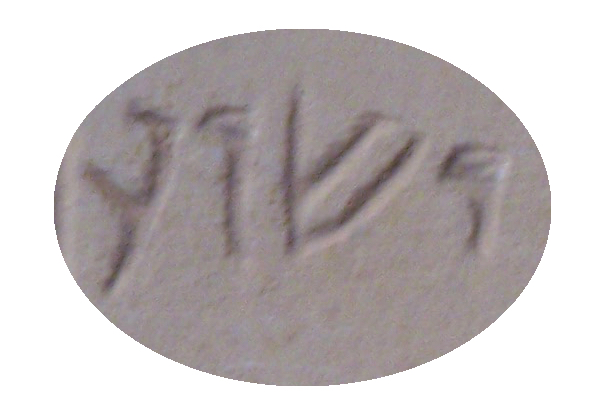Revised: 15-July-2015

Why do all of Jerusalem Perspective’s writers use the Greek name Jesus instead of “Y’shua” or “Yeshua”? Is there a reason? Where did the name “Jesus” come from?
—Maggie L. Lee, St. Louis, Missouri, U.S.A.
We use the spelling “Jesus” simply because that’s the way the name is written in English. “Jesus” is a transliteration of a Greek transliteration, Ἰησοῦς (Iēsous), of the Hebrew name יֵשׁוּעַ (Yēshūa‘). “Yeshua” would be closer to the way Jesus pronounced his name; however, since we refer to Jesus so frequently, it would be a burden to our readers to keep tripping over an unfamiliar form of the name.
Your question raises a larger issue with which the Synoptic Gospels confront us. Just as the Hebrew name Yeshua has been preserved in Greek, so these Gospels have preserved the biography of Jesus in Greek, although apparently written originally in Hebrew. Attempting to return to the conjectured Hebrew form of the records of the sayings and deeds of Yeshua enhances our understanding of their meaning.
The value of putting a translation back into its original language and context can be seen more clearly by taking an illustration from the Hebrew Scriptures rather than from the Gospels. Psalm 23 is so well known that we recite its phrases without thinking of their meanings, even though they often are far from clear. The King James Version of verse 2 reads: “He leadeth me beside the still waters.” Not to speak of the slight misunderstanding that the translation “beside” creates (one should translate, “He leads me to the still waters”), “still waters” is confusing, and from the sheep’s perspective a little disappointing. “Flowing waters” would sound much more inviting, since “still waters” often are stagnant. However, the Hebrew text does not actually say “still waters,” but rather מֵי מְנֻחוֹת (mē menuḥōt, “waters of resting places”). JPS translates: “He leads me to water in places of repose.”
The images are familiar: a shepherd bringing his sheep to an oasis—נְאוֹת דֶּשֶׁא (ne’ōt deshe’), not “green pastures”—where the sheep can rest (“lie down”) and drink from the “waters of resting places” that feed the oasis. The consequence of this rest stop is that the sheep’s soul, that is, “life,” is restored—the sheep is revived by the water and the rest.
We conjecture that the first story of Jesus’ life, like Psalm 23, was written in Hebrew. But whether this be the case or not, we have found that translating the Greek of the Synoptic Gospels to Hebrew is an extremely valuable exercise. Surprisingly, the exercise of back-translation often provides new insights, opening one’s eyes to possible alternative meanings of the text.
































































































